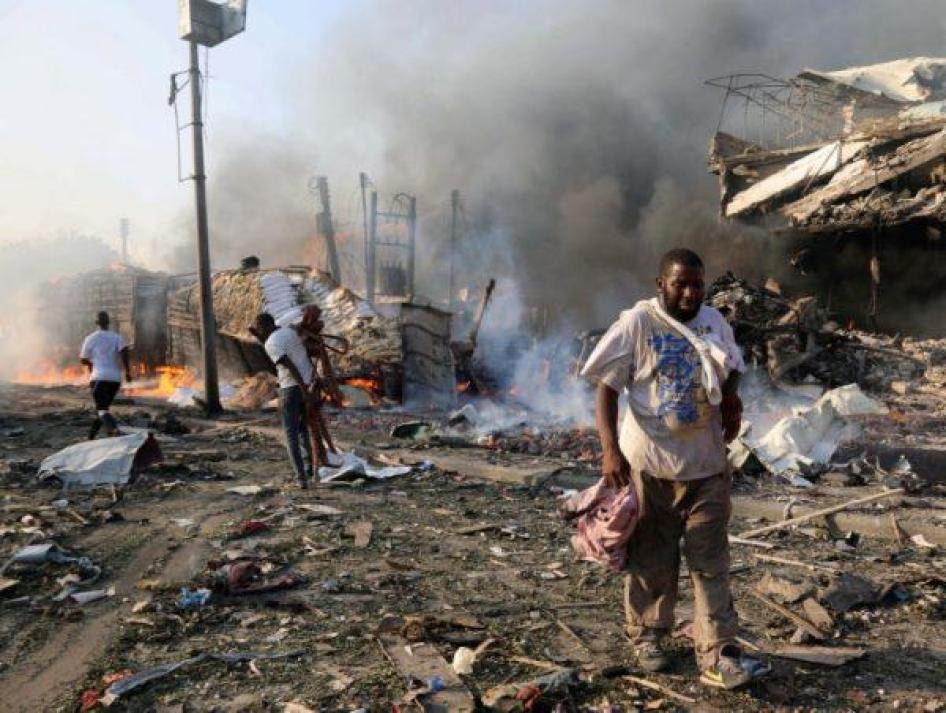The horrific bombing in a crowded and bustling area in Somalia’s capital, Mogadishu, on Saturday is a grim reminder of how deadly the country’s armed conflict remains for ordinary Somalis.
A bomb-laden truck exploded at a busy junction in central Mogadishu lined with government buildings, restaurants, hotels, and kiosks, killing at least 230 people and wounding hundreds more. The blast destroyed buildings and set vehicles ablaze.
It was the worst such attack to date in the capital, which has endured nearly three decades of violence. Human Rights Watch condemns this horrific bombing, which clearly aimed to kill large numbers of civilians.
A doctor at one of the city’s main hospitals that are grappling with the vast casualties told me by phone: “I ran to the scene of the attack shortly after and saw bodies everywhere, including very small children. I’ve been working round the clock, I am so tired, but I am also mourning as I lost 19 relatives in the attack.”
No armed group has yet claimed responsibility. Those responsible for ordering such attacks should be appropriately held to account.
Mogadishu has seen a stark rise in civilian casualties from improvised explosive devices over the last year. The Islamist armed group Al-Shabab frequently claims responsibility for attacks that target civilians and civilian structure – of the 1,228 civilian casualties recorded by the United Nations in Somalia so far this year, about half were caused by Al-Shabab attacks. Others were predominantly the result of government security operations against Al-Shabab.
After Saturday’s bombing, lists of people missing and photos of those killed are emerging on social media, along with personal accounts from friends and relatives of victims, while other family members await news of their loved ones. The death toll is not just a number, but real people. Our thoughts and sympathies are with all those affected.









